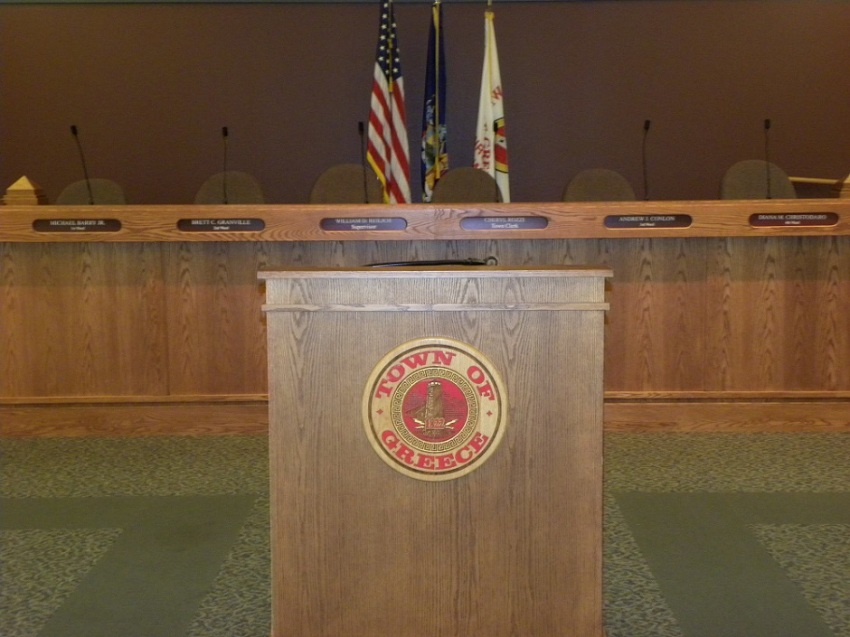After Supreme Court Win, Town of Greece Approves Guidelines for Prayer at Board Meetings

A New York town whose unofficial prayer policy was successfully defended before the U.S. Supreme Court has adopted a formal invocation policy for its monthly board meetings.
Town of Greece voted last week to adopt the formal policy, having had an informal policy wherein people could pray sectarian invocations before the beginning of the board's public meeting.
Brian Marianetti, attorney for Town of Greece, told The Christian Post that the invocation policy was approved by the board on Aug. 19 in response to the increased attention Greece got due to the controversy over its prayers.
"Since the Supreme Court decision, the town has gotten a lot of attention," said Marianetti, adding that they were "inundated with calls" from people across the country wanting to give opening invocations.
Marianettti explained that the board "can't accommodate all those requests," so they adopted a formal policy that limits invocation representatives to only representatives from "established assemblies" within the Town of Greece or to any "established assembly" outside of Greece that a Greece resident attends.
"This policy clarifies and codifies the town's practice of opening meetings of the town board with a brief prayer, a practice that was recently upheld by the U.S. Supreme Court," said Marianetti.
"It is our desire to focus our efforts on serving the residents of the Town of Greece and, with this policy in place, we are hopeful that we can return to the business of the town."
In May, the Supreme Court ruled 5 to 4 that the leadership of Town of Greece can hold explicitly Christian prayers before their monthly town meetings.
Known as Town of Greece vs. Galloway, the case had been brought up by two residents of Greece who opposed having explicitly Christian prayers before public meetings.
"The court must decide whether the town of Greece, New York, imposes an impermissible establishment of religion by opening its monthly board meetings with a prayer. It must be concluded … that no violation of the Constitution has been shown," read the majority opinion.
Since the decision was handed down, an atheist has given an invocation at a board meeting in Greece and other local governments across the country have considered revising their prayer rules for public meetings.
The Washington, D.C.-based Americans United for Separation of Church and State represented the two plaintiffs.
Ayesha Khan, attorney with Americans United, told CP that the newly approved invocation policy by Greece was "a mixed bag."
"On the one hand, it ensures that invocation givers can deliver a message of their choice, including a moment of silence," said Khan.
"It also ensures that members of minority faiths are welcome at the podium, and we believe that it would allow atheists and other nonbelievers to have equal access to the podium."
Khan added that "on the other hand, it is a bait-and-switch from what they claimed to the court, especially with respect to requiring that the invocation have an association with a religious assembly."
"In the past they had allowed even lay people to deliver the prayer … under the new policy three of the four non-Christians who have ever delivered the prayer would be ineligible to do so," said Khan.
Khan also told CP that her organization "will be watching very closely to see how the policy unfolds" and was not ruling out future legal action.



























